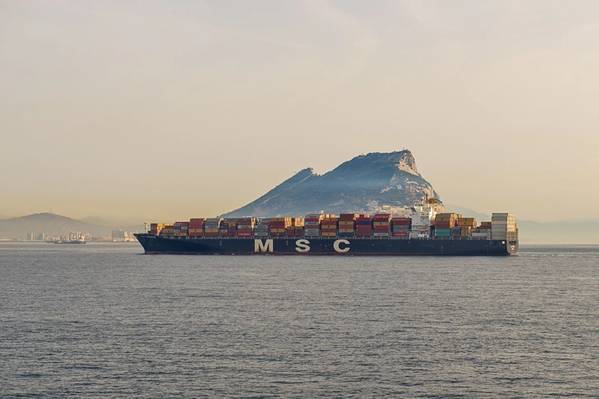
Container shipping giant MSC Mediterranean Shipping Company doubled down on its position to avoid sending its vessels through the Northern Sea Route and urged others to follow suit, citing environmental concerns.
“As a responsible company, this was an obvious decision for us,” said MSC CEO, Soren Toft. “MSC will not seek to cut through the melting ice of the Arctic to find a new route for commercial shipping, and I consider this a position the whole shipping industry must adopt.”
Running from Murmansk near Russia’s border with Norway to the Bering Strait near Alaska, the Northern Sea Route is significantly shorter than going via the Suez Canal and cuts sea transport times from Asia to Europe.
Shipping activity in the Arctic has picked up as the region has warmed at least twice as quickly as the rest of the world over the last three decades. In particular, the trade is driven by commodities producers—mainly in Russia, China and Canada—sending iron ore, oil, liquefied natural gas (LNG) and other fuels through Arctic waters.
MSC first announced its commitment to avoid the Northern Sea Route, including the Northeast and Northwest Passages, in 2019 in an effort to limit black carbon and other environmental impacts in the environmentally sensitive Arctic. Its competitors Hapag-Lloyd and CMA CGM are among other shipping companies that have made similar pledges.
“Some of our peers have already made the same commitment to put the preservation of the Arctic environment ahead of profits. The Northern Sea Route is neither a quick fix for the current market challenges, nor a viable long-term strategy,” Toft said.
An expansion of Arctic shipping could increase the emissions of so-called black carbon—physical particles of unburned carbon which can settle on land or ice, as well as compromising air quality and accelerating the shrinkage of Arctic sea ice. MSC said it believes risks such as navigation incidents, fuel spills, air quality and altering the ecological balance/biodiversity of the marine habitat beneath the surface of the sea also outweigh any commercial opportunities to make a short cut between North America or Europe and eastern Russia or Asia.
“Attempting to open new navigation routes which skim the polar ice cap sounds like the ignorant ambition of an 18th century explorer, when today we know that this would pose further risks to humans and many other species in that region, as well as worsen the impact of shipping upon climate change,” said Bud Darr, Executive Vice President Maritime Policy & Government Affairs at MSC Group.
“MSC supports the decarbonization targets of the UN International Maritime Organization, including complete decarbonisation of shipping, and sees no overall merit in using this potential trade route. The risks and impacts outweigh the benefits of the shorter transits. There are no shortcuts toward genuine decarbonization of shipping and this is a shortcut that should definitely be avoided.”




